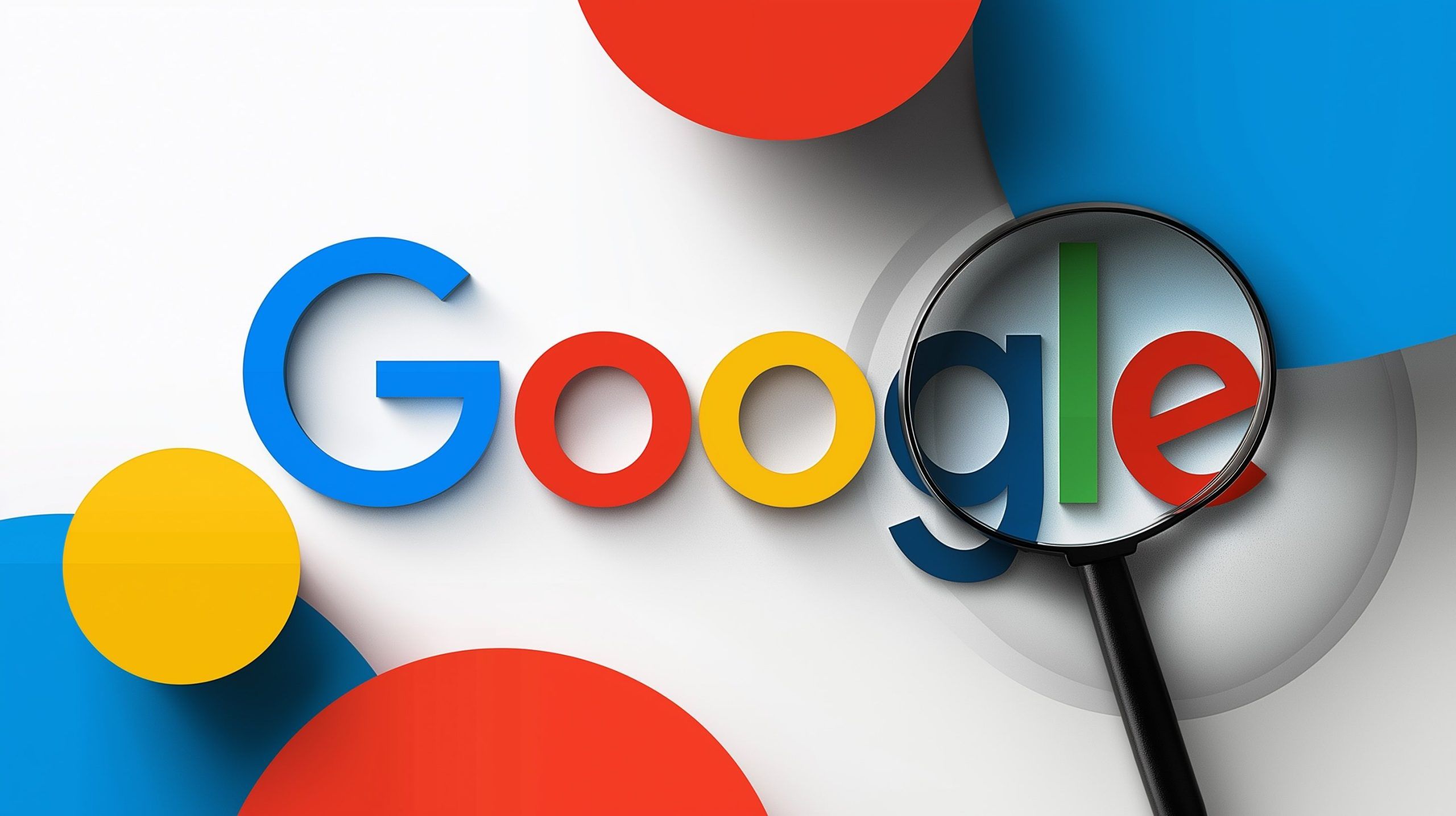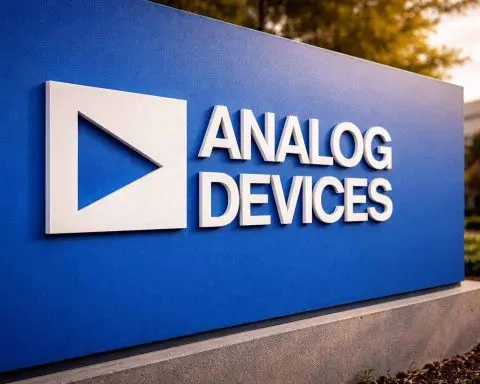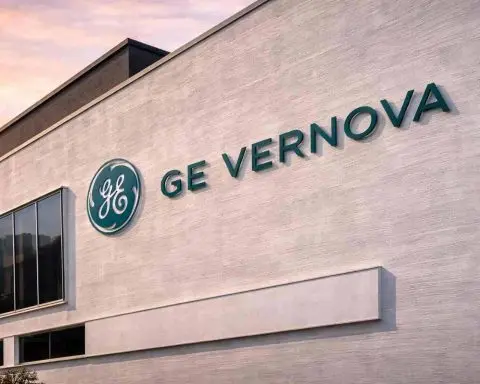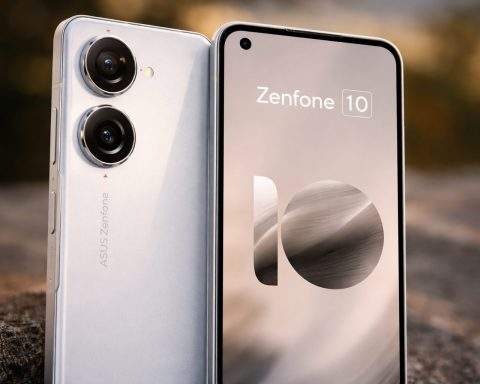- In July 2025, Google rolled out Gemini Code Assist with an “agent mode” that can analyze an entire codebase and autonomously implement multi-file changes from a single prompt, with IDE context-control enhancements.
- Google DeepMind published mid-July 2025 a Mixture-of-Recursions (MoR) architecture that doubles inference speed and reduces memory by about 50% by looping over a compact set of layers to handle the toughest tokens.
- Google globally launched the Veo 3 video-generation model in 159+ countries, enabling AI-generated videos up to 8 seconds from text prompts and capping free use to three videos per day for AI Pro subscribers.
- Pixel 9 Pro owners received a free year of Google AI Pro via a July Pixel Drop, unlocking Veo 3 and Circle to Search, and the Gemini AI assistant on Wear OS 4+ watches.
- Google Search began an AI-powered business-calling feature that can place calls to local businesses to check pricing and hours, with a Have AI check pricing button and higher usage limits for AI Pro/Ultra subscribers as it rolled out in the U.S.
- Google Search’s AI Mode was upgraded to Gemini 2.5 Pro for power users, and a new Deep Research feature was added for subscribers to tackle longer, more complex questions.
- Rivian rolled out a deep Google Maps integration in its EVs after 18 months of collaboration, delivering Rivian-specific mapping with real-time traffic, charging-stop planning, and a Rivian crowdsourced charger-rating system, and it helped spur a venture with Volkswagen.
- OpenAI became a Google Cloud customer in a cloud-partner deal alongside Azure and others, marking OpenAI’s diversification of compute sources and finalizing the arrangement in May and publicized in July.
- In the U.S., the DOJ and states’ antitrust case against Google moved toward remedies, with Judge Amit Mehta signaling preference for softer measures and a final ruling expected by August.
- In the EU, regulators pressed Google on DMA compliance with July’s Brussels workshop proposing two options for change, including a vertical search service box and direct-provider ranking box, while a potential fine could reach 10% of Alphabet’s global revenue (up to about $20 billion).
Google had a blockbuster July 2025, with headlines spanning AI breakthroughs, surprise product updates, big-name partnerships, legal showdowns, and a few controversies. From rolling out cutting-edge AI features across devices to facing regulatory heat in courtrooms, the tech giant kept everyone buzzing. Below is a comprehensive roundup of Google’s most significant July 2025 developments, organized by category for easy reading.
AI & Research Breakthroughs
- Next-Gen AI Coding Assistant: Google’s Gemini Code Assist tool for developers gained powerful new abilities. A July update introduced an “agent mode” that effectively acts as an AI pair programmer, capable of analyzing an entire codebase and autonomously implementing multi-file changes blog.google. In other words, the AI can now plan and execute complex coding tasks from a single prompt – proposing a solution, awaiting developer approval, then making the edits. Google says these upgrades, which also include IDE enhancements for better context control, aim to “significantly accelerate the development process” blog.google blog.google. Developers can try Gemini Code Assist for free via popular IDEs, reflecting Google’s push to infuse AI into programming workflows.
- Faster, Smarter AI Models: Researchers at Google DeepMind unveiled a breakthrough in AI model design that could make future systems faster and more efficient. In mid-July, they published details on a novel “Mixture-of-Recursions (MoR)” architecture, which doubles inference speed while slashing memory use by ~50% rohan-paul.com rohan-paul.com. The key is letting the AI model loop over a single compact set of layers multiple times for “tricky” tokens, instead of a giant fixed stack rohan-paul.com rohan-paul.com. Easy parts of text exit the loop early, so the model works hardest only on the toughest bits. This dynamic approach boosted accuracy on math and coding tasks without ballooning the model’s size rohan-paul.com rohan-paul.com. It’s a research advance that points toward more efficient large language models, addressing a core industry challenge. Experts noted the MoR technique as a promising way to get “fewer FLOPs, less memory, yet better performance” from AI rohan-paul.com.
- Generative AI Everywhere: Google continued to expand the reach of its generative AI tech. Notably, it rolled out the new Veo 3 video-generation model globally to users in over 159 countries techcrunch.com. Veo 3 lets users create short AI-generated videos (up to 8 seconds) from simple text prompts techcrunch.com. However, this futuristic feature isn’t totally free-range – it’s limited to paying subscribers of Google’s AI Pro plan (capped at three videos per day) techcrunch.com. Google showcased Veo 3 earlier this year and is already working on image-to-video generation capabilities to extend its creative arsenal techcrunch.com. The global launch underscores how Google is racing to weave generative AI into its products, from text and images to now video.
Product Launches & Updates
- Pixel’s Surprise AI Feature Drop: Pixel phone owners got an unexpected mid-year treat – a “surprise” Pixel Drop software update landed in July loaded with AI-powered features. For one, Pixel 9 Pro users are being gifted a free year of “Google AI Pro” subscription, unlocking Google’s most advanced AI goodies blog.google. That includes full access to Veo 3 (mentioned above), so Pixel users can describe an idea and watch it come to life as a high-quality short video with realistic audio blog.google. Another new perk, “Circle to Search”, lets you delve deeper into anything on your screen using AI follow-up questions blog.google. After highlighting or circling content (text or images), you can ask context-aware questions about it via AI Mode, even getting in-game assistance with tips timestamped to your exact spot in a mobile game blog.google. And not to be left out, the Pixel Watch gained a serious upgrade: Google’s Gemini AI assistant is now on Wear OS smartwatches, meaning you can get smart Assistant help on your wrist using the same advanced models that power Google’s latest phones blog.google. This marks the first time Google’s new Gemini AI replaces the old Assistant on watches, a trend likely to extend across all devices. (In fact, Google confirmed it’s rolling out Gemini to watches from Pixel, Samsung, Oppo, OnePlus, Xiaomi and more running Wear OS 4+, as part of a broader plan to eventually replace Google Assistant with Gemini AI everywhere techcrunch.com.) To invoke it, users just say “Hey Google” or press the watch’s side button, then ask anything from “Do I need an umbrella today?” to “Summarize my last email” – and the AI can even perform multi-app tasks like adding events to your calendar by voice techcrunch.com techcrunch.com. All told, Google’s July Pixel Drop injected a heavy dose of AI into the user experience, blurring the line between phone, app, and assistant.
- Google Search Gets AI Smarter: Not content with adding AI to hardware, Google also turbocharged its flagship Search product with more AI. It began rolling out an AI-powered “business calling” feature that sounds straight out of sci-fi: the AI will call local businesses on your behalf to ask about things like pricing, hours or appointment availability techcrunch.com techcrunch.com. For example, you can search “pet groomers near me” and hit a new “Have AI check pricing” button; Google’s agent will then ring up groomers, ask about your specific pet and service, and report back the info techcrunch.com techcrunch.com. The assistant always announces itself as an automated Google system at the start of the call (a direct response to the backlash Google faced after its 2018 Duplex demo, when human-sounding AI calls raised ethical eyebrows) techcrunch.com. This time around, Google is being transparent to avoid “misleading people into thinking they were speaking with another human,” an issue it promised to fix after the Duplex trials techcrunch.com. The new calling feature began a U.S. rollout in July, initially to Search Labs testers and now expanding to all U.S. users, with higher usage limits for paying Google AI Pro/Ultra subscribers techcrunch.com. Early use cases include checking restaurant table availability, salon pricing, or store stock – all without you picking up the phone. It’s a bold attempt to make the search engine an active agent that can perform real-world tasks, not just fetch web results.
- “AI Mode” Upgrade in Search: Google’s experimental AI chat mode in Search (part of its Search Generative Experience) got a boost for power users. In mid-July, the company upgraded the model underpinning Search’s AI Mode to “Gemini 2.5 Pro” – the most advanced version of its model available techcrunch.com. This upgrade, available to subscribers of Google’s paid AI tiers, means the search AI can handle more complex, multi-part questions with improved reasoning, math, and coding skills techcrunch.com. Essentially, pro users can toggle on a more intelligent chat model when asking things like intricate homework problems or coding queries. Google also introduced a “Deep Research” feature in Search’s AI Mode for subscribers techcrunch.com, aiming to help users dive further into long-form questions. These moves show Google leveraging its top AI models to differentiate Google Search for paying customers, keeping pace in the AI search race. (Microsoft’s Bing is doing similar with GPT-4.) It’s an unusual situation where parts of Google Search are becoming a premium service – a notable strategic shift for a product that’s been free for decades.
- Other Product Tweaks: Google’s vast array of services saw countless smaller updates in July. A notable mention: Google Discover, the personalized news feed in the Google app, quietly started showing AI-generated news summaries (more on the controversy around this below). And on the Android/Play Store side, Google implemented new Play Store policy changes in July affecting app ratings and financial apps asoworld.com, as well as prepping the next Android version (Android 16) for developers blog.google. While not headline-grabbing individually, these incremental changes collectively show Google’s focus on infusing AI assistance everywhere (from photo editing in Google Photos to live captions in Android) and tightening up ecosystem policies as it faces regulatory scrutiny.
Strategic Partnerships & Market Moves
- OpenAI Teams Up with Google Cloud: In a plot twist that underscores the hunger for AI compute power, OpenAI (the maker of ChatGPT) has added Google as a cloud partner to help run its massive AI workloads reuters.com. An updated supplier list published in July revealed that OpenAI is now tapping Google Cloud’s infrastructure alongside its primary backer Microsoft Azure, as well as Oracle and startup CoreWeave reuters.com. This “deal with Google, finalized in May after months of discussions,” only became public now and marks a significant diversification for OpenAI reuters.com. Until earlier this year, OpenAI was essentially locked in to Microsoft’s Azure datacenters (Microsoft has invested billions in OpenAI). But surging demand for AI computing capacity – and perhaps a desire for bargaining power – prompted OpenAI to seek additional cloud suppliers reuters.com reuters.com. The partnership with Google is highly strategic: it gives OpenAI alternative sources of the advanced GPUs/TPUs needed to train and run models, and it gives Google a high-profile customer pushing the limits of its cloud. Industry watchers noted this as a remarkable collaboration between rivals reuters.com reuters.com. OpenAI and Google compete in AI (think ChatGPT vs. Google’s Bard), yet here Google Cloud stands to profit by renting out computing power to a competitor. It shows how “massive computing demands to train and deploy AI models are reshaping competitive dynamics in AI” reuters.com – even bitter rivals will partner if it means accessing more silicon. For Google, landing OpenAI as a cloud client validates its AI-oriented cloud offerings (after losing some ground to Azure) and could bring insights from OpenAI’s workloads. For OpenAI, it’s a safety valve to ensure it isn’t wholly dependent on Microsoft. As one Reuters analysis put it, this move “marks OpenAI’s latest maneuver to reduce its dependency on Microsoft” as it pursues an ambitious $500 billion “Stargate” AI supercomputer project with others reuters.com reuters.com.
- Rivian and Google Map the Future: Electric vehicle maker Rivian struck a notable deal with Google to enhance its in-car tech. After 18 months of joint engineering work, July saw Rivian begin rolling out a customized version of Google Maps in its EVs techcrunch.com. This isn’t your standard Android Auto projection or off-the-shelf Google solution. Instead, Google built a deep integration “down to the API level” of Google Maps exclusively for Rivian techcrunch.com. Rivian drivers will now see Google’s rich mapping data – complete with real-time traffic, satellite imagery, and points of interest – embedded in Rivian’s own navigation interface techcrunch.com techcrunch.com. Crucially, it incorporates all of Rivian’s EV-specific features: the custom trip planner that factors in charging stops and range, the “Range on arrival” estimates, preferred charger locations, and even a crowdsourced charging station rating system derived from Rivian vehicle data techcrunch.com techcrunch.com. In short, it’s Google Maps with a Rivian twist – Google supplies the mapping backbone, while Rivian layers on its UI design and electric-car smarts. “We obviously closely watch customer feedback, and one area of criticism was navigation,” said Rivian’s Chief of Software, Wassym Bensaid, explaining why the automaker partnered with Google rather than incrementally tweaking its old system techcrunch.com. Previously, Rivian used Mapbox maps; by switching to Google, they gain vastly more data and capabilities. For Google, this partnership is a showcase for Google Maps’ flexibility and a foot in the door of a rising EV brand (Rivian’s vehicles now have Google services integrated without running the full Android Automotive OS). Industry observers saw this as part of Google’s strategy to expand in the automotive sector beyond Google-built infotainment – being the maps provider for carmakers that want customization. The collaboration has already borne fruit for Rivian: the company said this enhanced software helped it clinch a joint venture with Volkswagen to develop future tech techcrunch.com. Rivian owners received the new Google-based mapping via a software update in July, and the Rivian mobile app is also gaining the feature techcrunch.com. It’s a win-win that gives EV drivers a better experience (no more relying on a phone for Google Maps) while deepening Google’s footprint in cars in a new way.
- Misc. Moves: Google’s enterprise and cloud divisions also kept busy. In early July, Spanish banking giant BBVA announced it’s deepening its partnership with Google Cloud to deploy Google Workspace with AI (Gemini) across its operations googlecloudpresscorner.com. And Google Cloud’s influence in telecom grew as Chinese device maker Honor touted an expanded partnership leveraging Google’s AI and cloud infrastructure honor.com. While these may not grab headlines, they underscore Google’s market strategy of weaving AI and cloud services into big industries like finance and telecom. Each deal helps Google compete with AWS and Azure by showcasing unique AI prowess (for example, offering Gemini-powered features in Workspace to automate office tasks for BBVA googlecloudpresscorner.com). Expect to hear more on these fronts during Google Cloud Next 2025, which is heavily emphasizing AI and is scheduled for later this year.
Legal & Regulatory Battles
- U.S. Antitrust Trial Wraps Up: Google’s courtroom challenges in the US heated up as a major antitrust case neared conclusion. The Department of Justice (DOJ) and a coalition of states have sued Google for allegedly monopolizing the online search market – and back in late 2024 the court found Google liable. July 2025 was all about the remedy: what should be done to rein in Google’s dominance. In late June and into July, U.S. District Judge Amit Mehta heard closing arguments on proposed remedies, and he hinted he may opt for softer measures than what regulators want reuters.com reuters.com. Notably, Judge Mehta seemed skeptical of forcing Google into a long, onerous oversight. “Ten years may seem like a short period, but in this space, a lot can change in weeks,” he mused, alluding to how fast AI is transforming search – “maybe people don’t want 10 blue links anymore” reuters.com reuters.com. (This was a reference to the rise of AI chatbots like ChatGPT potentially upending traditional search results.) Regulators have urged a 10-year regime including a ban on Google’s multibillion-dollar payments to Apple and others for staying the default search engine reuters.com. They also floated forcing Google to share search data with rivals to level the playing field reuters.com. But Judge Mehta suggested a more conditional approach: perhaps require Google to end its Apple Safari default deal only if other remedies (like data sharing or allowing easier competitor access) don’t boost competition enough reuters.com reuters.com. He also questioned whether AI companies like OpenAI should count as “search competitors” for the purpose of data-sharing remedies, given the case was framed around traditional search engines reuters.com. Google, for its part, argued that it has already changed practices (e.g. not doing exclusive deals for its Assistant on phones) and that handing over its search tech to rivals would be unfair since “Google has spent 20 years” building it reuters.com. A final ruling is expected by August, according to the judge reuters.com. The stakes are huge: potential structural changes to how Google distributes search. But given the judge’s remarks, the outcome may be more modest than the DOJ hoped, especially as AI competition (ChatGPT, Bing Chat, etc.) provides an unexpected twist in Google’s defense – the argument that the market is already shifting.
- EU Targets Google’s Favoritism – Google Fights Back: Across the Atlantic, Google spent July embroiled in a showdown with EU regulators over the Digital Markets Act (DMA). The European Commission has accused Google of unfairly favoring its own services in search results – things like Google Shopping, Google Flights, and Google Hotels allegedly get preference over rival specialized search engines reuters.com reuters.com. This is a direct no-no under the new DMA (which aims to curb Big Tech self-preferencing), and it carries fines up to 10% of global revenue for non-compliance reuters.com. Google has been scrambling to avoid yet another massive EU fine. On July 7–8, EU officials convened a workshop in Brussels where Google presented proposals to its competitors and regulators on how it plans to change its ways reuters.com reuters.com. Google actually offered two different remedy options (labeled Option A and Option B in documents) to address the concerns reuters.com. Both options would dramatically reshape Google’s European search page: they’d introduce a prominent “vertical search service box” at the top of search results that showcases links to competing travel or local search providers (like Skyscanner, Booking.com, Tripadvisor, etc.), above Google’s own travel or local results reuters.com. In addition, Google said it would rank direct service providers (hotels, airlines, etc.) in a box below the rival search sites’ box reuters.com – an attempt to appease both aggregators and the businesses themselves. However, the reception was frosty. After the workshop, Google openly admitted it “failed to resolve disagreements” with the affected parties, conceding that “competing interests continue to pull us in different directions” reuters.com. “While we have invited feedback throughout this process, we now need to bring this debate to an end without the interests of a few being prioritised over the millions of people and businesses in Europe who benefit from Search,” wrote Google’s lawyer Oliver Bethell in a pointed LinkedIn post during the talks reuters.com. This statement hinted that Google feels it has bent over backwards and must move on, even if a few rivals aren’t satisfied. Those rivals certainly weren’t satisfied: Skyscanner’s CEO Bryan Batista blasted Google’s latest proposal, saying “the latest options on the table… risk misleading consumers and cementing Google’s position at the top of organic results.” reuters.com He and others argue Google’s “concessions” are either cosmetic or introduce new problems, and that Google is trying to shift focus to squabbles between airlines and aggregators rather than its own self-preferencing behavior reuters.com. A lawyer for some complainants, Thomas Hoppner, critiqued that Google’s framing diverts attention from “the root issue: its own non-compliance” that created these tensions in the first place reuters.com. In short, no deal was reached in July – meaning the European Commission is likely to move toward finding Google in violation of the DMA and imposing a fine. Google did make one more tweak to its proposals on July 2 (ahead of the workshop): in what it called “Option B,” Google said it would include free links to the actual suppliers (e.g. hotel or airline websites) in any specialized results box, not just links to aggregator sites reuters.com reuters.com. Google claims it has made “hundreds of alterations” to comply with the DMA so far, and voiced concerns that too-strict rules will lead to “worse online products and experiences for Europeans.” reuters.com. But as of July 9, EU officials and Google’s rivals remained unconvinced that the search giant is doing enough reuters.com reuters.com. The Commission is expected to decide in the coming months whether Google’s changes meet the DMA requirements; if not, a fine up to 10% of Alphabet’s worldwide revenue (which could be ~$20 billion) looms large reuters.com. This transatlantic one-two punch – U.S. antitrust and EU DMA enforcement – made Summer 2025 a legal minefield for Google, with potentially significant impacts on its business practices moving forward.
- Privacy Payouts and Other Legal News: On the privacy front, Google’s legal team had a very expensive quarter (technically late Q2): it agreed to pay a $1.375 billion settlement to resolve two big data privacy lawsuits brought by Texas, marking Google’s largest-ever payout for privacy claims reuters.com reuters.com. Texas had sued Google over allegedly unlawful collection of Texans’ location data, search history, voice and faceprints (for services like Google Photos and Assistant) without proper consent reuters.com reuters.com. Google admitted no wrongdoing and noted many of the policies in question “have long since changed,” but cutting a billion-dollar check allows it to move on reuters.com. (This mirrors a similar $1.4 billion settlement Meta/Facebook paid Texas in 2022 over facial recognition data reuters.com.) While this settlement was announced in May, its repercussions were felt in July as industry analysts debated whether the US is finally getting serious about tech privacy – the payout even exceeds some GDPR fines in Europe gamingtechlaw.com gamingtechlaw.com. Google also remains under European regulatory scrutiny for appeals against past fines (such as a record €4.1 billion Android antitrust fine; an EU court adviser recommended upholding it in July). All told, the legal and regulatory challenges facing Google are mounting on multiple fronts – antitrust, privacy, competition – forcing the company to adjust strategies and allocate billions for fines and compliance. July 2025 showed that “Big Tech is not above the law,” as Texas AG Ken Paxton crowed reuters.com, even if Google is trying to negotiate and innovate its way through these storms.
Controversies & Criticisms
- AI vs Publishers – The Traffic Tug-of-War: A brewing controversy in July centered on Google’s use of AI summaries in news, which has publishers on edge. Google began rolling out AI-generated summaries in Google Discover, the news feed on Android and iOS techcrunch.com. Now, instead of a single news headline card linking to one outlet, you might see a brief summary of a story with multiple news outlet logos cited below it techcrunch.com. For example, a trending sports story might show “Team X won 2-1… (summary)…” with sources like ESPN, BBC, and Sports Illustrated listed. Google does label these with a warning that “summaries are generated with AI, which can make mistakes.” techcrunch.com techcrunch.com It’s not universal yet – in TechCrunch’s tests, only some stories in Discover had the AI blurb, focusing initially on trending lifestyle, sports, and entertainment topics in the U.S. techcrunch.com. Google confirmed this is a full U.S. launch, not just a limited experiment techcrunch.com. The stated goal is to help users digest news more easily and decide which articles to read. Google says the feature will “make it easier for people to decide what pages they want to visit,” by providing a quick overview techcrunch.com. It also has other new ways of clustering news (like grouping related stories or showing bullet-point takeaways for some articles, even when not explicitly labeled as AI) techcrunch.com. Publishers, however, are worried – and not without reason. Many news outlets have already been fretting about decreased traffic from Google search in recent years techcrunch.com, especially as Google experiments with AI answers directly on search results (the SGE/AI chat in Search can summarize web info without a click-through). Now, AI summaries in the feed are another potential blow. If users can glean the gist of a news story from the summary, they might never tap through to the publishers’ websites. Early reactions in the publishing industry ranged from cautious to critical. Industry analysts noted that features like Google’s AI Overviews and this Discover summary mean users “no longer have to visit a website directly to get answers” – Google can serve it up in-app, potentially “threatening publishers with further traffic declines.” techcrunch.com techcrunch.com Some publishers are experimenting with their own AI summary tools on their sites, but when Google does it at the aggregator level, it could impact referral traffic for everyone. There’s also the issue of attribution and fairness: Google is summarizing content that publishers produced, to keep users within Google’s ecosystem longer – a longstanding gripe that’s now amplified by AI’s capabilities. This controversy ties into broader negotiations (and fights) between tech platforms and news companies globally. For example, in Canada, new legislation requiring payment for news led Google to negotiate a $100 million deal with Canadian publishers to continue showing news reuters.com – and Google was granted a 5-year exemption from that law after agreeing to pay up globalnews.ca. So, Google clearly sees value in news content, but wants to leverage AI to present it efficiently. Striking the balance between user convenience and publisher revenue is tricky. Observers will be watching how Google tweaks the feature – e.g., ensuring the source logos are prominent, maybe limiting summary length – and whether publishers push for compensation when AI summarizes their articles. It’s a classic controversy of the digital age: one person’s helpful innovation is another’s existential threat.
- AI Ethics and Misinformation Concerns: Google’s aggressive AI push hasn’t been without criticism on ethical grounds, though July didn’t see a singular flare-up – more an undercurrent of concern. Academics and industry critics continue to debate the implications of Google’s large-scale AI model deployments (like Gemini), including issues of training data usage (scraping internet content for AI learning) and AI “hallucinations” giving incorrect answers. Google has tried to get ahead of these by implementing guardrails (for instance, Bard and other AI features have fine-tuned safety and cite sources where possible). Yet, as Google integrates AI deeper into search and everyday tools, some worry about the erosion of human-curated results and transparency. The business-calling AI feature drew some wary reactions due to the specter of the original Duplex incident – the idea of robots impersonating humans on calls still makes many uneasy. Google’s explicit declaration at the start of each call that it’s an automated agent techcrunch.com is meant to allay that. But it raises the question: will people hang up once they hear it’s a bot? Are local businesses prepared to deal with an influx of AI callers? It’s a new etiquette frontier. Additionally, the antitrust trial transcripts revealed tidbits about Google’s view on AI competitors – for example, an OpenAI exec testified that they’d love access to Google’s search index to improve ChatGPT (something the judge was hesitant about) reuters.com. This highlights a brewing debate: is training an AI on a rival’s data an antitrust issue or an IP issue? No easy answers yet. On a lighter note, Google’s own AI researchers faced a fun embarrassment when a TechCrunch piece quipped that Google’s Gemini AI “panicked” playing Pokémon in an experiment techcrunch.com – reminding us that even state-of-the-art AI can be dumb in surprising ways. While not a scandal, it’s a humbling counterpoint to the hype. All said, Google’s “AI-first” strategy continues to draw a mix of awe and skepticism. The company is under pressure to innovate rapidly (thanks to OpenAI and others), but it’s also under the microscope to do so responsibly. Expect these ethical and societal critiques to keep shadowing Google’s AI launches beyond July.
- Workforce & Culture Notes: July brought quieter news on the internal Google culture front. Earlier in the year, Google joined other tech giants in embracing hybrid work and mandating more office days, which reportedly caused some employee grumbling (and even a few departures of remote-working staff). In July, there wasn’t a major new development there – more a continued adjustment to Google’s post-pandemic work policies. The company is also a year out from its big 2024 layoffs and subsequent hiring rebound, so morale and retention topics are stabilizing. However, one internal controversy did flicker: an ongoing debate over AI development ethics. Google’s AI researchers have had high-profile tensions in the past (recall the departure of ethical AI lead Timnit Gebru in 2020). In 2025, with Google racing to deploy AI, some insiders reportedly worry that competitive pressure might sideline ethical review processes. There’s no evidence of a flashpoint in July, but the concern is that launching things like AI summaries or AI writing features could pose biases or inaccuracies that haven’t been fully studied. Google says it remains committed to responsible AI, noting it has an AI ethics review board and releases model cards detailing limitations. Yet the true test will be whether any AI misstep forces a change in course. So far, aside from a few erroneous answers and weird AI behaviors (which Google is quick to patch), no crisis – but many are watching vigilantly.
Sources: This report drew on a variety of credible sources, including official Google blog announcements, reputable tech news outlets, and global news organizations. Key information on product updates came from Google’s own July blog posts and statements blog.google blog.google, as well as detailed coverage in TechCrunch techcrunch.com techcrunch.com. AI research insights were referenced from Google DeepMind publications and expert analyses like Rohan’s Bytes rohan-paul.com rohan-paul.com. Product and partnership news was reported by outlets such as TechCrunch techcrunch.com techcrunch.com and Reuters reuters.com reuters.com. Developments in legal cases and regulatory actions were covered extensively by Reuters reuters.com reuters.com and summarized here with direct quotes from officials and stakeholders reuters.com reuters.com. Lastly, the publisher traffic controversy was highlighted by TechCrunch’s reporting on Google’s AI summaries techcrunch.com techcrunch.com. All facts and quotes are sourced from these publications to ensure accuracy and credibility. Google’s July 2025 can indeed be summed up as a month where AI permeated everything – exciting to many, unsettling to some – and where Google’s moves often straddled the line between innovation and provocation. The rest of 2025 will show which of these stories turn out to be transformational and which are mere footnotes in Google’s ever-evolving saga.









